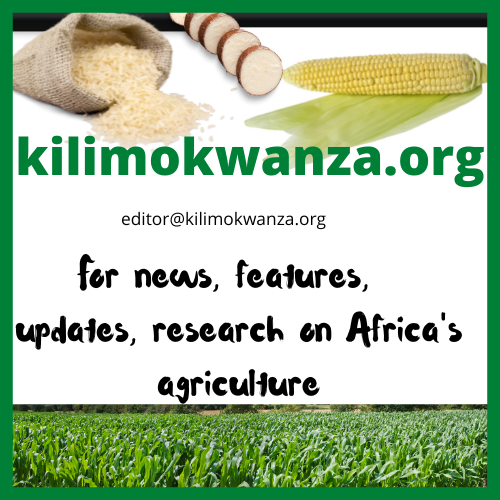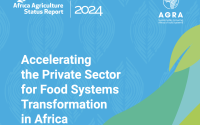Sagcot Vows to Battle Soil Acidity Countrywide through Low-Cost Lime Treatments
Kilimokwzana.org Team.
In a country where more than 65% of the population depends on agriculture, the battle against soil acidity is a monumental task. Sagcot has recently pledged to intensify its efforts to combat soil acidity nationwide, utilizing the power of lime and empowering local farmers with low-cost, practical knowledge on soil treatment.
Maria Ijumba, Sagcot’s Head of Cluster Development, painted a hopeful picture for the future of Tanzanian agriculture. She shared the inspiring success of a pilot soil treatment project at Kiponzelo village in the Iringa Region. The initiative, she emphasized, demonstrated the transformative potential of lime treatments on acidic soils and the farmers’ eagerness to adopt these new, effective methods.
“Soil health is paramount if you want bumper harvests and quality crops, especially in a landscape where agriculture is the lifeblood for many Tanzanians,” Ijumba said, reaffirming Sagcot’s commitment to bring this soil treatment knowledge to every corner of Tanzania.
In collaboration with the government and other key stakeholders, Sagcot aims to make lime, the critical component in this soil health revolution, readily available and affordable for farmers nationwide.
The impact of this initiative is not just limited to improved crop yields; it’s bringing about a more profound change in the Tanzanian farming landscape. As Ijumba puts it, “The enthusiastic reception of this new technology speaks volumes about the need for education and resources to combat soil acidity.”
Sagcot’s efforts are backed by partners like Iringa’s Regional Agricultural Officer, Grace Macha, who lauds the partnership as a solution to long-standing agricultural challenges. “Sagcot’s approach of rallying varied stakeholders has unearthed sustainable solutions to soil acidity problems that previously seemed insurmountable,” she said.
Echoing this sentiment, Dr. Ravic Nijbroek of CIAT, an institution focused on soil health, highlighted the urgency of addressing soil health on a continental level. He referenced Ethiopia’s struggle with soil acidity, which resulted in an annual loss of over 500 million US dollars.
Currently, Sagcot operates in five clusters within the corridor, with only the Ihemi Cluster, which includes the Iringa and Njombe regions, presently operational. Here, farmers have already begun experiencing the benefits of Sagcot’s approach to agricultural productivity, particularly in producing tomatoes, dairy products, Irish potatoes, soya, and maize.
In the face of the challenges posed by soil acidity, Sagcot’s commitment to expand their efforts countrywide signals a promising future for Tanzanian agriculture. By harnessing the power of lime treatments and prioritizing the education of farmers, Sagcot is set to revolutionize the way agriculture is conducted, ensuring both the health of the soil and the prosperity of the nation’s farmers.
Lime is pivotal in agricultural practices and is particularly significant in combating soil acidity. Soil acidity is a widespread issue that inhibits plant growth and reduces agricultural productivity. Lime acts as a neutralizing agent, helping to balance the soil’s pH levels and promoting healthier and more bountiful crop growth.
Lime also introduces essential nutrients like calcium and magnesium into the soil. These nutrients aid in plant growth and development, further enhancing crop yield. By correcting soil acidity, lime improves the effectiveness of fertilizers and pesticides, leading to a better return on investment for farmers.
Moreover, lime fosters beneficial soil bacteria, improving soil structure and enhancing water and nutrient holding capacity. This leads to more resilient crop systems that can better withstand periods of drought or excessive rainfall.
Beyond its direct impact on soil health and crop yields, the widespread adoption of lime treatment can have far-reaching consequences. By improving agricultural productivity, it bolsters farmers’ livelihoods and contributes to regional food security. Given the significant proportion of people reliant on agriculture for their livelihood in many parts of the world, lime application could be a powerful tool in the broader fight against poverty and hunger.
However, it’s important to note that while lime can greatly improve soil health and productivity, its application must be balanced and appropriate for the specific soil conditions. Over-liming can be just as detrimental as under-liming, leading to nutrient imbalances and reduced crop productivity. Thus, lime application must be paired with soil testing and agricultural education to ensure the most beneficial and sustainable outcomes.


